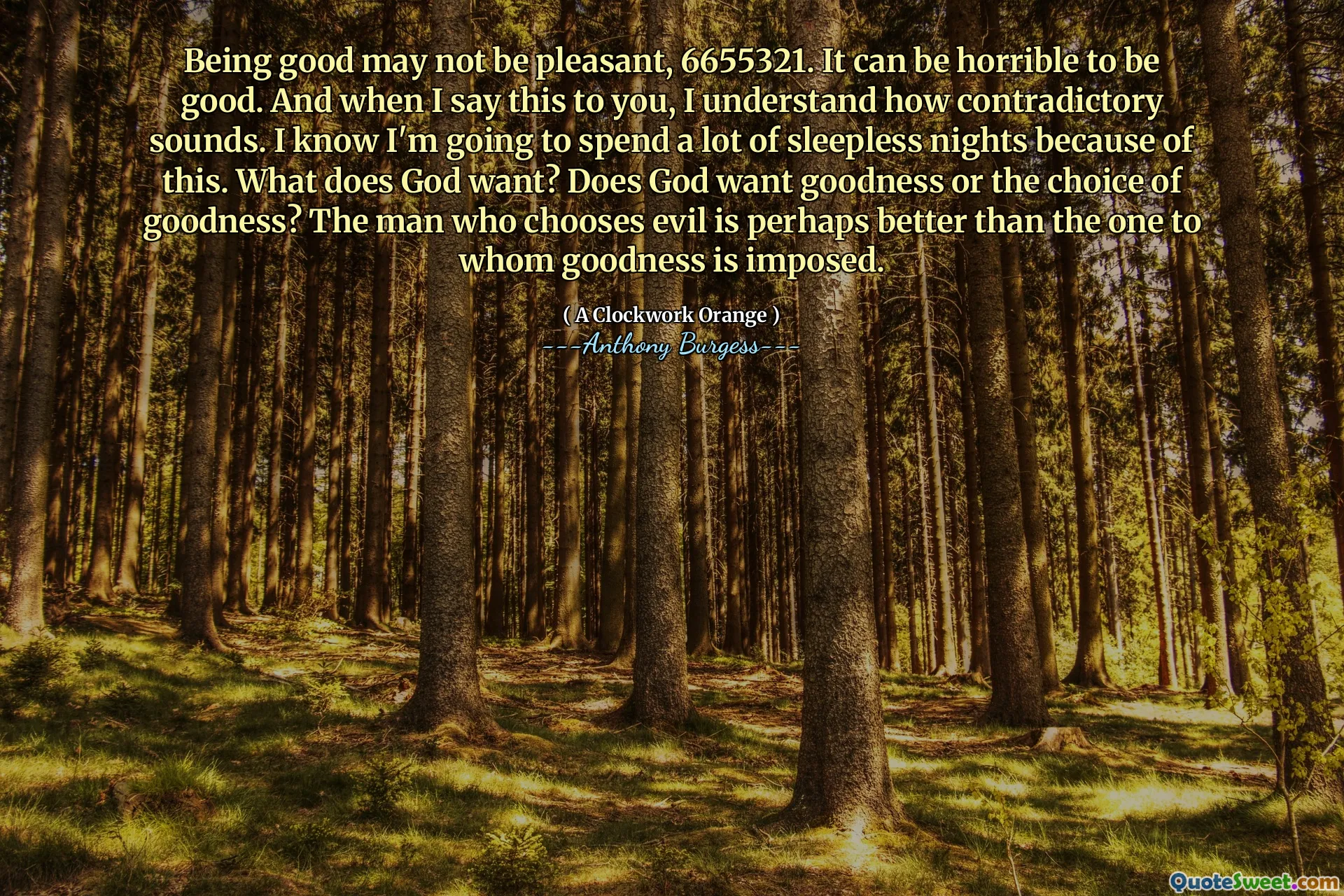
Being good may not be pleasant, 6655321. It can be horrible to be good. And when I say this to you, I understand how contradictory sounds. I know I'm going to spend a lot of sleepless nights because of this. What does God want? Does God want goodness or the choice of goodness? The man who chooses evil is perhaps better than the one to whom goodness is imposed.
The quote highlights the complex nature of morality, suggesting that being good can often lead to distress and discomfort. The speaker acknowledges the difficulty of adhering to a moral path, feeling that the struggle for goodness might even lead to sleepless nights. This contradiction raises questions about the essence of moral choice and the burdens that come with striving for goodness.
Burgess further explores the idea that genuine moral choices are crucial. The text implies that choosing between good and evil defines a person's character more accurately than simply following imposed standards of morality. In this way, the essence of being good lies not just in the act itself but in the autonomy of choosing to be good over succumbing to evil.











